Every now and then, the people behind ProtonDB release data dumps from user generated reports of games tested in Steam Play.
What is ProtonDB? It's an unofficial statistics website, where you can note how good or bad various games run on Steam when played with Steam Play. It's a fun one to track, so with a new data dump I thought it might be interesting to try my hand at getting something out of the data for anyone curious.
The latest data dump is available here, which shows a total of 29,823 reports so it's getting rather massive. It goes to show just how many people are testing a wide variety of games!
First up, here's a look at how many reports are going in monthly:
Clearly less reports going into it as time goes on, which is quite interesting. Now, it doesn't mean Steam Play is suddenly any less popular of course, we do have to remember this is an unofficial website and given how many games have a lot of reports already, some may now just look to see existing reports.
Specific to this month, there were 3,119 reports. Here's a breakdown of those reports (one didn't seem to have a status set correctly):
As for the actual games being reported, here's the top 15 most reported games on ProtonDB through January:
Quite an interesting and varied selection there, with Yakuza 0 being no surprise since it was part of last month's Humble Monthly.
It's also nice to see so many people trying out (and enjoying) The Witcher 3, with it being the second most popular game. I'm not entirely surprised here, as I imagine a number of people purchased it originally when a big announcement was made about it coming to SteamOS/Linux which never actually happened in the end. It's another reason why Steam Play is such a great idea, for the times we are sadly let down and for those who don't care about port arguments who just want to play great games.
Here's a look at some more details like Linux Distributions. This one is a close-enough approximation, as the list of distributions is quite varied and messy on the naming, as it's gathered from Steam's system information output:
Note: Some distributions only come up as "Linux 4.x". For those, we're verifying using the Kernel string for both Arch, Fedora and Gentoo. Still looking over ways to do the same for others. All other distributions are bundled into "Other".
Next, here's a look at what types of GPU people are using when attempting to play games with Steam Play:
And again here with what CPU people are using:
Additionally, most reports (1,757 of them) were made using the latest available Proton Beta 3.16-6.
Hopefully I will take another look when they do their next database dump, if people find it interesting enough of course.
FreeSync/VRR should arrive with Linux 5.0 (in a few weeks)
Is anyone working on Vulkan and Wayland support for it?
Vulkan needs something extra for making it to work? I didn't have issues with Vulkan and Freesync on nvidia.
Wayland is another question though. Not being able to use Dual-monitor is the biggest issue for me. Let's see if that can be fixed in X at all or if it will work in Wayland some day.
FreeSync/VRR should arrive with Linux 5.0 (in a few weeks)
Is anyone working on Vulkan and Wayland support for it?
Vulkan needs something extra for making it to work? I didn't have issues with Vulkan and Freesync on nvidia.
Wayland is another question though. Not being able to use Dual-monitor is the biggest issue for me. Let's see if that can be fixed in X at all or if it will work in Wayland some day.
Only RadeonSI (the OpenGL driver) has support for variable refresh rate so far. For Vulkan, we have the unofficial RADV driver and AMD's AMDVLK. Neither of them supports variable refresh at the moment, but it shouldn't be too much work to implement.
With that said, I tried to build everything from git and using the latest kernel release candidate and I could not get Freesync to work so it's not looking great. I find it ironic that Nvidia actually beat AMD with providing Freesync support on Linux first :D
It's also nice to see so many people trying out (and enjoying) The Witcher 3, with it being the second most popular game.
Yes, very nice seeing plagiarism get rewarded. Good lesson for everyone: want to be successful? Just steal some shit. As long as Moorcock doesn't get his share of the royalties, I'll keep advocating for people to boycott TW.
It's also nice to see so many people trying out (and enjoying) The Witcher 3, with it being the second most popular game.
Yes, very nice seeing plagiarism get rewarded. Good lesson for everyone: want to be successful? Just steal some shit. As long as Moorcock doesn't get his share of the royalties, I'll keep advocating for people to boycott TW.
Assuming that the charge is fair, it's still Sapkowski's fault, though, not CDPRs.
Not that I have any idea what I'm talking about.
Plagiarism? You mean, Sapkowski made the game?It's also nice to see so many people trying out (and enjoying) The Witcher 3, with it being the second most popular game.
Yes, very nice seeing plagiarism get rewarded. Good lesson for everyone: want to be successful? Just steal some shit. As long as Moorcock doesn't get his share of the royalties, I'll keep advocating for people to boycott TW.
Here I was, thinking that the game was just using characters and background from books, and that the original author signed off those for a ridiculously low sum (100% his fault, not CDPR's, nobody forced him at gunpoint).
That he was also writing and voicing the dialogues, creating all the assets, coding the game and designing the mechanics... so basically creating 90% of the game was real news to me.
Thanks for clearing that up!
Last edited by TheSHEEEP on 4 Feb 2019 at 8:55 pm UTC
The lesson is, if you have a successful book series, don't sell the rights to use it for pennies!
I don't think they want anything to do with Linux again.
AFAIK they received threats when Witcher 3 took too long to port + they were mad with Witcher 2's performance (and the fact it was Wine-wrapped, not native), and it got so ugly that they canceled it altogether.
They basically hate us now. Just beause some loud mouths couldn't accept the fact that we're such a small market that a lot of the stuff we get is basically charity, and they went to demand things like some kind of kings or something.
Stupidity of threats aside, that's not how businesses operate. It's not some kind of tantrum driven decision making. They got massively bigger amount of outrage from Windows gamers about so called "downgrade". Do you expect them to stop releasing for Windows now? So, view them as objective enough, but may be clueless and in need of convincing about the Linux market.
I would expect them to stop! That is if I were to fall for their "reasons" (well at least according to some users)…
Always amused me how some ppl seem to think that it cannot be other than Linux or Linux people sucking.
I give it to a lack of self-esteem or outright blatant ignorance.
By the way, did all forget that there was like zero official response for TW3 Linux saga? Not from CDPR, not from VALVE™.
By the way-2, it's not like we don't have planty of examples as to how games that would allegedly have Linux support went south.
Anyway I have learned for myself how to tackle Linux gaming.
Buy only games from Porting houses (Feral, Apsyr, etc.) or games that have day-0 linux support.
All the rest go: echo "SOME_NAME" >> ~/games/.blacklist
Last edited by bolokanar on 5 Feb 2019 at 5:14 pm UTC
By the way, did all forget that there was like zero official response for TW3 Linux saga? Not from CDPR, not from VALVE™.
Yes, their communication (or lack of it more precisely) is abysmal. If they thought it's damage control, they thought wrong, it only tarnished their reputation.
@Torrit).
The only downside is - I couldn't get SteamController to work properly (not a big loss though as my main gamepad Logitech F710 worked out of the box flawlessly
That's strange. I played Witcher 3 with Steam Controller and it worked out of the box. No tinkering, no setting, just plug and play.
... it's now verifying with the Kernel string too as Arch 99% of the time has arch in the Kernel version...Antergos has "arch" in it too
Antergos properly identifies itself as Antergos though, as far as I am aware.... it's now verifying with the Kernel string too as Arch 99% of the time has arch in the Kernel version...Antergos has "arch" in it too
...As for AMD GPU ... if you can enable screen tearing options similar to nvidia's fullscreenpipeline stuff...AMD doesn't need such option because vsync "just works" there
The point of Nvidia's full compositor pipeline setting is that it'll prevent tearing even if you disable v-sync. I think AMD's TearFree option has a similar effect....As for AMD GPU ... if you can enable screen tearing options similar to nvidia's fullscreenpipeline stuff...AMD doesn't need such option because vsync "just works" there
The point of Nvidia's full compositor pipeline setting is that it'll prevent tearing even if you disable v-sync. I think AMD's TearFree option has a similar effect.
The point of that "forced pipeline" is really because normal vsync is broken on Nvidia, unlike on AMD. That's why it's plagued with tearing on Linux. The reason is that they aren't using proper kernel interfaces for it. That "forced compositing pipeline" is a crude workaround, not a proper solution.
Last edited by Shmerl on 5 Feb 2019 at 10:20 pm UTC
That doesn't really match my experience, but I guess I'll take your word for it.The point of Nvidia's full compositor pipeline setting is that it'll prevent tearing even if you disable v-sync. I think AMD's TearFree option has a similar effect.
The point of that "forced pipeline" is really because normal vsync is broken on Nvidia, unlike on AMD. That's why it's plagued with tearing on Linux.
That doesn't really match my experience, but I guess I'll take your word for it.
You mean you didn't have any tearing issues even without using that "forced pipeline" setting? When I was using Nvidia, I constantly had them. vsync plainly didn't work at all.
Last edited by Shmerl on 6 Feb 2019 at 6:58 pm UTC
I wouldn't say I didn't have any issues, but (opengl/vulkan) v-sync mostly just worked. I remember I used to have tearing with video playback before all the players supported hardware acceleration (vdpau), but it's been a while.That doesn't really match my experience, but I guess I'll take your word for it.
You mean you didn't have any tearing issues even without using that "forced pipeline" setting? When I was using Nvidia, I constantly had them. vsync plainly didn't work at all.
I only recently switched (back) to AMD, and immediately had to enable TearFree to fix tearing issues so the difference isn't as dramatic as you make it seem. When it comes to this particular issue that is. Of course there are other things AMD and even Intel do better than Nvidia, even if you ignore the ideology. But this is getting a bit off topic so I'll leave it there.
I only recently switched (back) to AMD, and immediately had to enable TearFree to fix tearing issues so the difference isn't as dramatic as you make it seem.
I see you are using xfce and I'm not surprised. TearFree is enabled out of the box on most sane mainstream DE's like Gnome and KDE. I'm not saying xfce is bad because it certainly has it's place, but the issue in your case isn't with AMD, it's with xfce's bad defaults.
I see you are using xfce and I'm not surprised. TearFree is enabled out of the box on most sane mainstream DE's like Gnome and KDE. I'm not saying xfce is bad because it certainly has it's place, but the issue in your case isn't with AMD, it's with xfce's bad defaults.
I get screen tearing even on intel integrated, with XFCE (compositor on).
I see you are using xfce and I'm not surprised. TearFree is enabled out of the box on most sane mainstream DE's like Gnome and KDE. I'm not saying xfce is bad because it certainly has it's place, but the issue in your case isn't with AMD, it's with xfce's bad defaults.
I get screen tearing even on intel integrated, with XFCE (compositor on).
Yep. If someone is complaining over screen tearing on Intel or AMD graphics, it's pretty safe to assume they are using xfce.
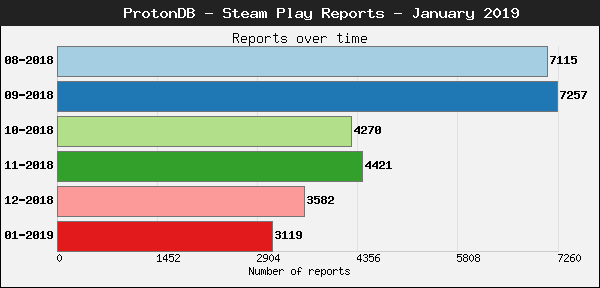
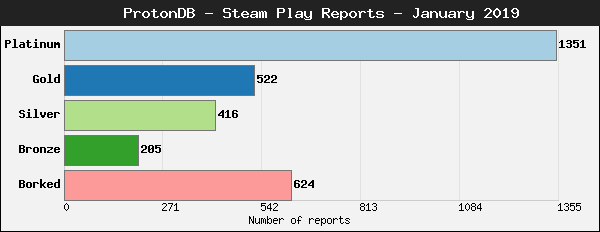
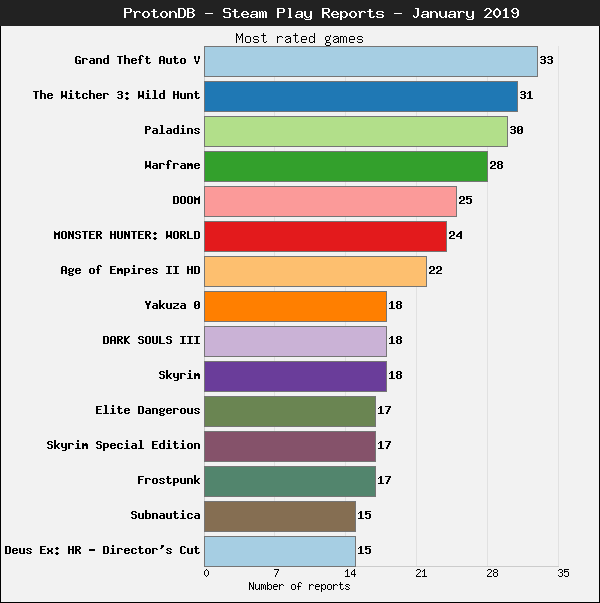
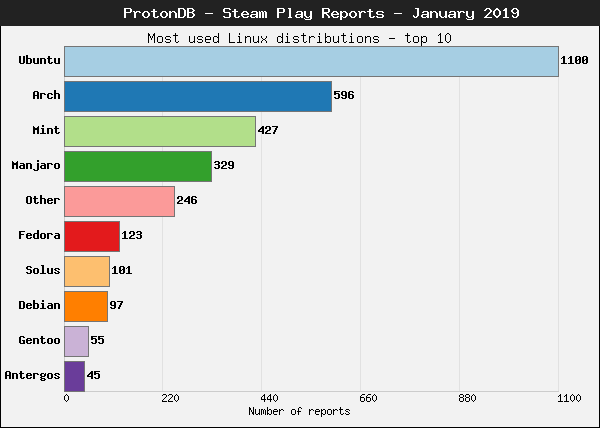


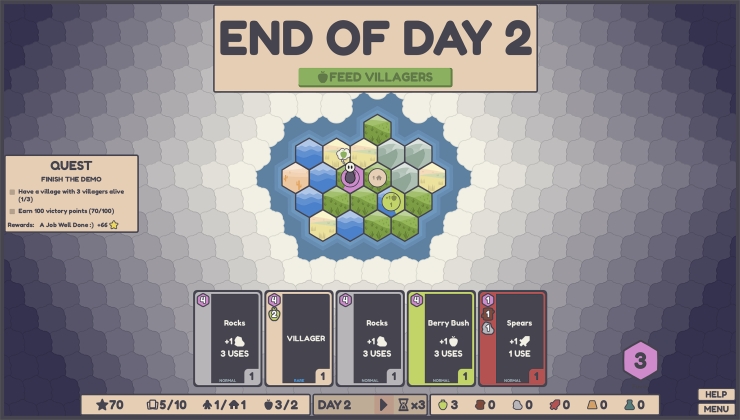

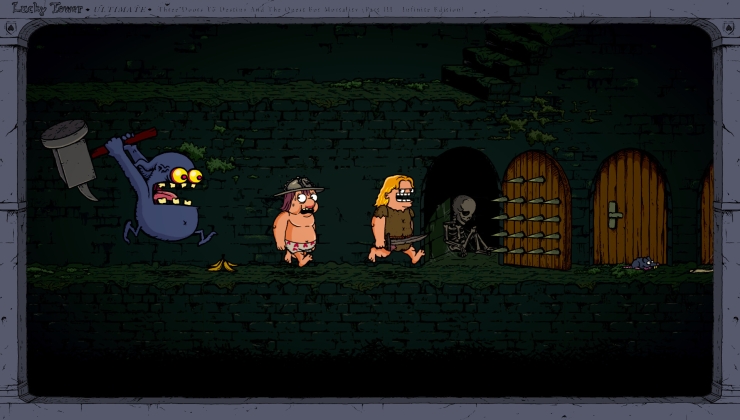
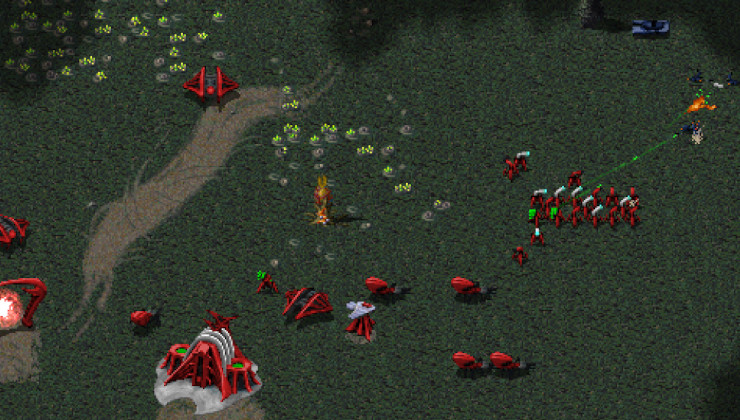







 How to set, change and reset your SteamOS / Steam Deck desktop sudo password
How to set, change and reset your SteamOS / Steam Deck desktop sudo password How to set up Decky Loader on Steam Deck / SteamOS for easy plugins
How to set up Decky Loader on Steam Deck / SteamOS for easy plugins
See more from me